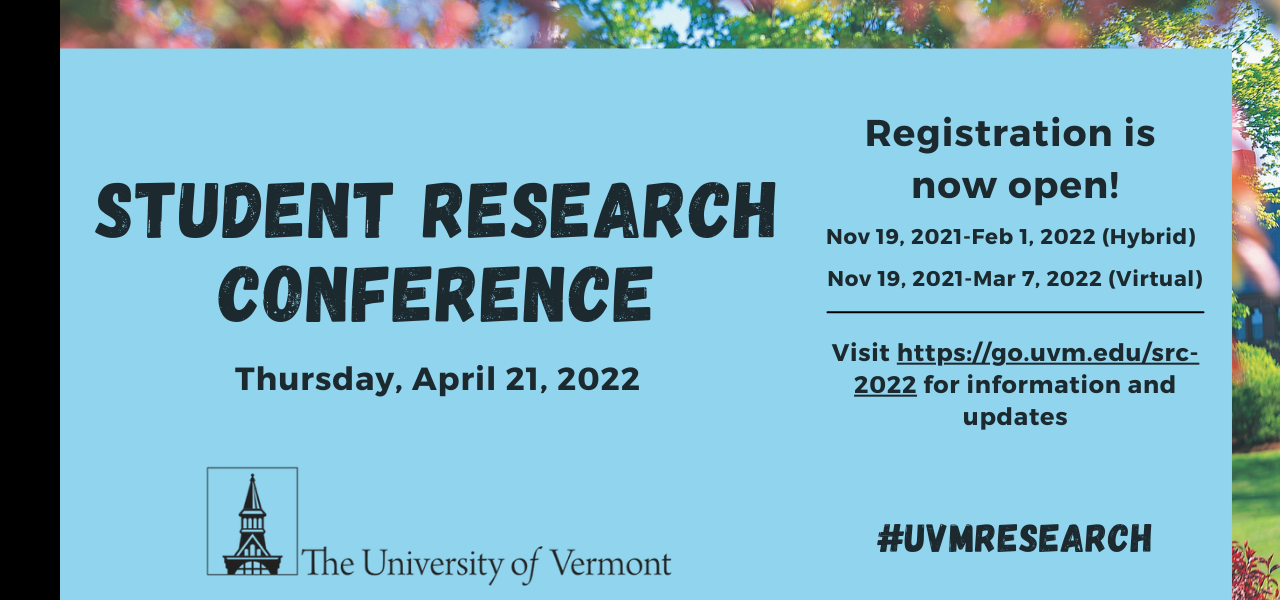Performance of Agroecological Principles in Urban/Peri-Urban Agriculture: Site Assessment of the Horticultural Research and Educational Center
Conference Year
January 2022
Abstract
This project is a continuation of an ongoing project assessing urban and peri-urban agroecology (UPAE) across the Burlington area. The intent of this broader UPAE project is to assess how agroecology is present and conceptualized in Burlington, to cement relationships with key actors in the Burlington agricultural community, and continue to assess how urban/ peri-urban agroecology can contribute to sustainable development, even in a rural state like Vermont. Prior to our work in this project, similar projects with similar methodology have been conducted with New Farms for New Americans, the Vermont Community Garden Network and the Champlain Housing Trust, and the Intervale Center. Future work at these sites could include addressing questions around ecological design as well as assessing the cultural ecosystems of each site (Caswell et al., 2021). The immediate next step, however, is to apply the same methodology to the University of Vermont’s Horticulture Research and Education Center.
Primary Faculty Mentor Name
Vic Izzo
Secondary Mentor Name
Martha Caswell
Status
Undergraduate
Student College
College of Arts and Sciences
Program/Major
Environmental Studies
Second Program/Major
French
Primary Research Category
Food & Environment Studies
Secondary Research Category
Social Sciences
Tertiary Research Category
Arts & Humanities
Performance of Agroecological Principles in Urban/Peri-Urban Agriculture: Site Assessment of the Horticultural Research and Educational Center
This project is a continuation of an ongoing project assessing urban and peri-urban agroecology (UPAE) across the Burlington area. The intent of this broader UPAE project is to assess how agroecology is present and conceptualized in Burlington, to cement relationships with key actors in the Burlington agricultural community, and continue to assess how urban/ peri-urban agroecology can contribute to sustainable development, even in a rural state like Vermont. Prior to our work in this project, similar projects with similar methodology have been conducted with New Farms for New Americans, the Vermont Community Garden Network and the Champlain Housing Trust, and the Intervale Center. Future work at these sites could include addressing questions around ecological design as well as assessing the cultural ecosystems of each site (Caswell et al., 2021). The immediate next step, however, is to apply the same methodology to the University of Vermont’s Horticulture Research and Education Center.


